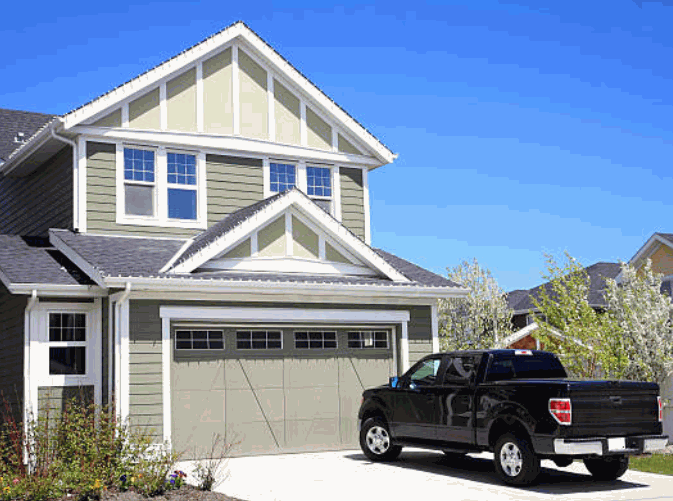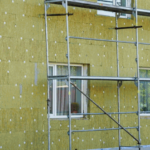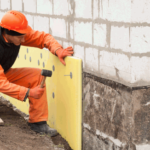Have you ever considered upgrading your driveway with a resin surface but aren’t sure where to start?
We will explore what a resin driveway is, the common types of resin used, and the benefits it offers.
We will also discuss the common causes of damage to resin driveways and provide tips on how to repair and maintain them.
Whether you’re looking to enhance the appearance of your home or increase its durability, a resin driveway could be the perfect solution.
Take a look: How To Resin A Driveway
What Is A Resin Driveway?
A resin-bound driveway is a type of surface that combines resin with aggregate to create a durable, permeable, and visually appealing driveway, and it is a popular choice among homeowners in Devon and Cornwall due to its versatility and aesthetic appeal.

What Are The Common Types Of Resin Used In Driveways?
When considering materials for resin-bound driveways, two common types of resin used are epoxy resin and polyurethane resin, each offering distinct advantages and applications as noted by experts.
Epoxy Resin
Epoxy resin is known for its strong adhesive properties and quick curing time, making it ideal for creating a solid and smooth surface on driveways.
One of the primary advantages of epoxy resin is its exceptional durability, lasting for years without showing signs of wear and tear. Its resistance to chemical spills makes it a popular choice for areas where spills are common, such as garage floors and industrial spaces. The quick curing time of epoxy resin allows for minimal downtime during installation, ensuring that driveways can be back in use in no time. The smooth and even surface created by epoxy resin not only enhances the aesthetic appeal of driveways but also makes them easier to clean and maintain.
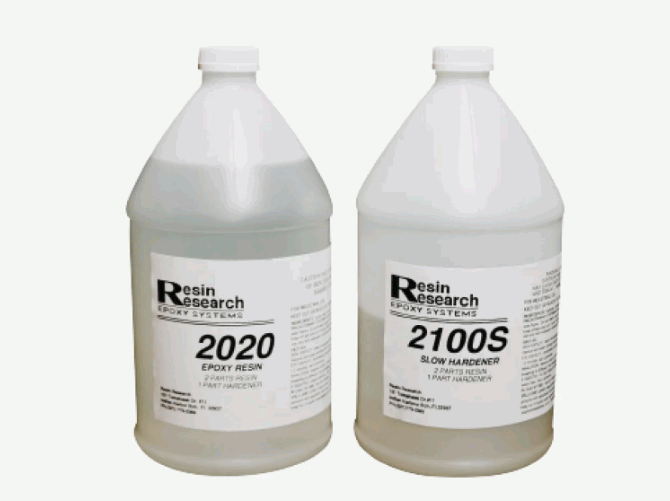
Polyurethane Resin
Polyurethane resin is highly flexible and can withstand significant temperature changes, making it an excellent choice for driveways in areas with variable weather conditions.
Its exceptional durability allows it to resist cracking caused by the constant expansion and contraction that occurs with fluctuating temperatures. This makes polyurethane resin particularly well-suited for regions prone to extreme weather conditions like freezing cold winters or scorching hot summers.
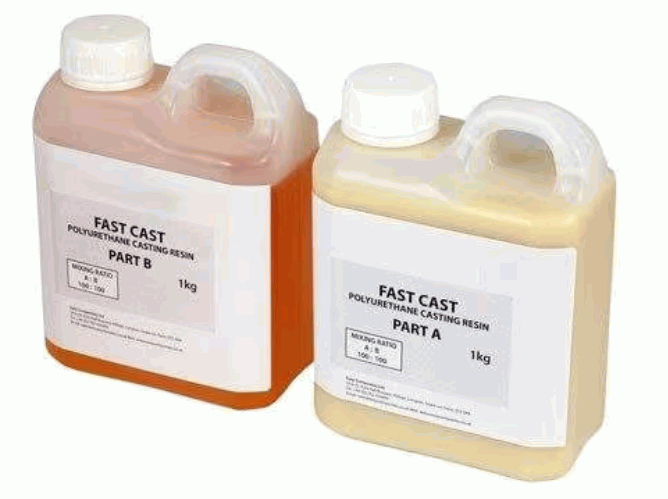
What Are The Benefits Of A Resin Driveway?
Resin driveways offer numerous benefits, including exceptional durability, low maintenance requirements, and an aesthetically pleasing appearance that remains unaffected by UV exposure.
Durability
The durability of resin-bound driveways is one of their standout features, as they can withstand the weight of heavy vehicles and the pressures of daily use thanks to the high-quality aggregate used in their construction.
Resin-bound driveways offer a unique combination of strength and aesthetic appeal. The high-quality aggregate acts as a solid foundation, ensuring that these surfaces remain intact despite the constant stress they endure.
Whether it’s cars driving over them or the impact of changing weather conditions, resin-bound driveways are designed to stand the test of time. Their ability to maintain their structure and look over years of use sets them apart as a reliable and low-maintenance option for homeowners.
Low Maintenance
Resin driveways are low maintenance and highly resistant to weed growth and oil stains, making them an ideal choice for homeowners seeking an easy-to-care-for surface.
With their durable nature, resin driveways do not require frequent cleaning or repairs, saving time and effort for homeowners. To keep them looking pristine, a simple cleaning routine suffices – regular sweeping to remove debris and occasional rinsing with water. Applying a resin sealant once a year can help protect the surface from potential damage and maintain its appearance. By addressing spills promptly and avoiding harsh chemicals, resin driveways can retain their aesthetic appeal for years to come.
Aesthetically Pleasing
The aesthetically pleasing nature of resin-bound driveways makes them a popular choice, as they offer a smooth, attractive surface that remains vibrant and unblemished despite prolonged UV exposure.
Resin driveways not only provide a visually appealing entrance but also enhance the overall curb appeal of a property. The smooth surface of resin-bound driveways creates a sleek and modern look that can significantly elevate the exterior of a home. The durability of resin ensures that the driveway maintains its pristine appearance over time, resisting discoloration or fading caused by exposure to UV rays. This means homeowners can enjoy a beautiful driveway that requires minimal maintenance and retains its allure for years to come.
What Are The Common Causes Of Damage To Resin Driveways?
Despite their durability, resin driveways can be susceptible to damage from various factors such as reflective cracking, extreme temperature changes, and chemical spills.
Heavy Vehicles
Heavy vehicles can cause significant stress on a resin driveway, especially if the sub-base and base preparation are not properly executed.
A strong and well-constructed sub-base is essential to distribute the weight of heavy vehicles evenly and prevent the driveway from cracking or sinking under pressure. Without a solid sub-base, the driveway may not be able to withstand the constant load and movement of heavy vehicles, leading to structural damage over time.
To avoid these issues, it is crucial to excavate the area properly, remove any soft spots or debris, and then compact the soil to create a stable foundation. Adding geotextile fabric can also help to prevent the sub-base from shifting or settling unevenly.
Properly preparing the sub-base and base layers ensures that the driveway can support the weight of heavy vehicles without compromising its integrity, durability, and longevity.
Harsh Weather Conditions
Harsh weather conditions, particularly extreme temperature changes, can lead to cracks and other forms of damage in resin-bound driveways.
Freezing and thawing cycles are common culprits that compromise the durability of resin driveways. When water seeps into small cracks and crevices within the resin surface, it expands upon freezing, causing the cracks to widen. To prevent such issues, it is essential to regularly inspect the driveway for any signs of damage. Applying a high-quality sealant can help protect the surface from moisture infiltration. Avoiding the use of harsh chemicals for de-icing and opting for gentle alternatives can prolong the lifespan of resin driveways in fluctuating weather conditions.
Chemical Spills
Chemical spills, including oil stains, can penetrate the surface of resin-bound driveways and cause discoloration and deterioration if not promptly addressed.
It’s important to note that various chemicals can pose a threat to the resin surface. For instance, acidic substances like vinegar or bleach can eat away at the protective layer, leading to visible damage over time. Similarly, harsh solvents such as paint thinners or gasoline can weaken the bonds holding the aggregate together, resulting in cracks and patches of exposed aggregate. To prevent such issues, it’s essential to clean up spills as soon as they occur using mild soap and water to maintain the driveway’s aesthetic appeal and structural integrity.
How Can You Repair A Resin Driveway?
Repairing a resin-bound driveway can involve various methods such as patch repairs, resealing the surface, or even resurfacing the entire driveway depending on the extent of the damage.
Patching Small Cracks Or Holes
Patching small cracks or holes in a resin driveway is a straightforward process that involves cleaning the area, applying a patch repair resin, and allowing it to cure properly.
After thoroughly cleaning the damaged area with a stiff brush and mild detergent, make sure to rinse it with water and allow it to dry completely.
Once the surface is clean and dry, prepare the patch repair resin following the manufacturer’s instructions. Apply the resin using a putty knife, filling the crack or hole completely while leveling it with the surrounding driveway.
Resealing The Surface
Resealing the surface of a resin driveway with a product like the Vuba Resin Bound Sealer can restore its appearance and protect it from future damage.
Applying a high-quality sealer like the Vuba Resin Bound Sealer not only enhances the aesthetic appeal of the driveway but also helps prevent issues like color fading, UV damage, and weed growth. By creating a protective barrier, the sealer shields the surface from water penetration, oil stains, and other external elements that could deteriorate the resin bound material over time.
The process of resealing involves thorough cleaning of the existing surface, and removing any dirt, debris, or previous sealant residues. Once the surface is clean and dry, the sealer is applied evenly using a roller or brush, ensuring complete coverage. This helps maintain the integrity of the driveway, prolonging its lifespan, and reducing the need for frequent repairs.
Resurfacing The Driveway
Resurfacing the driveway involves applying a new layer of resin and aggregate overlay, a process often recommended by professionals from The Resin Mill for severely damaged surfaces.
Surface preparation is a critical step in ensuring the longevity and effectiveness of the new layer. Ahead of application, professionals meticulously clean the existing surface, repairing any cracks or imperfections to create a smooth base for the overlay. This meticulous attention to detail is what sets experts, ensuring a high-quality finish that not only improves the aesthetics but also enhances the durability of the driveway.
What Are Some Tips For Maintaining A Resin Driveway?
Maintaining a resin driveway involves regular cleaning, avoiding the use of harsh chemicals, and properly maintaining vehicles to prevent leaks and stains.
Regular Cleaning
Regular cleaning of a resin driveway is essential to prevent weed growth and maintain a clean, attractive surface.
The key to successful maintenance lies in utilizing suitable cleaning agents and equipment for the task at hand. Regarding cleaning a resin driveway, it’s important to opt for gentle yet effective cleaners that won’t damage the surface. Avoid using harsh chemicals that can strip away the resin’s protective layer. Investing in a high-quality brush or pressure washer can make the cleaning process more efficient.
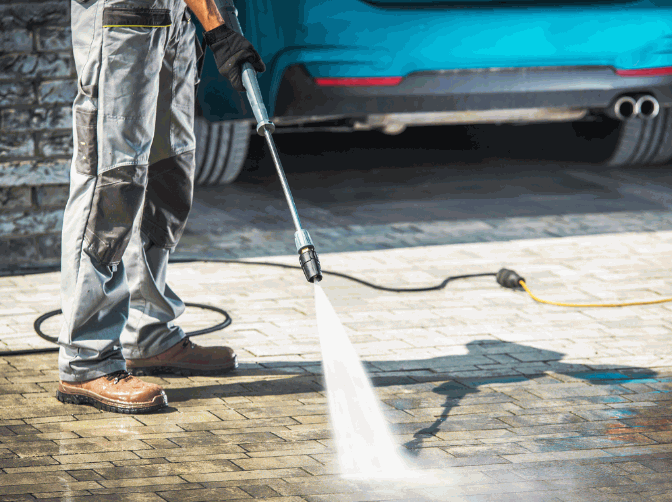
Avoiding Harsh Chemicals
Avoiding harsh chemicals is crucial to preserving the durability of a resin driveway, as certain substances can damage the resin and aggregate over time.
Common chemicals to avoid when cleaning a resin driveway include bleach, gasoline, oil-based solvents, and harsh detergents. These can break down the resin, leading to cracking and fading of the surface. Using abrasive tools like wire brushes or pressure washers can cause irreparable damage.
To safely clean and maintain a resin driveway, opt for mild soapy water, vinegar solutions, or specialty resin-friendly cleaners. Gentle scrubbing with a soft brush or sponge is usually sufficient to remove dirt and stains without harming the surface.
Regular sweeping and rinsing with water can also prevent dirt buildup and prolong the lifespan of your resin driveway. Applying a protective sealant every few years can help maintain its appearance and durability.
Properly Maintaining Vehicles
Properly maintaining vehicles is important to prevent oil stains and other types of surface damage to a resin driveway.
Regularly checking for any leaks or spills from your vehicle can help prevent oil stains on your driveway. It’s essential to inspect the driveway surface frequently for any signs of staining or damage. Addressing any oil leaks promptly is crucial to avoid permanent staining and deterioration of the driveway material.
If you notice oil stains on your driveway, act quickly to clean them up. Use an appropriate oil stain remover and scrub the affected area to remove the stain. Rinse the driveway thoroughly to ensure all residue is removed.
